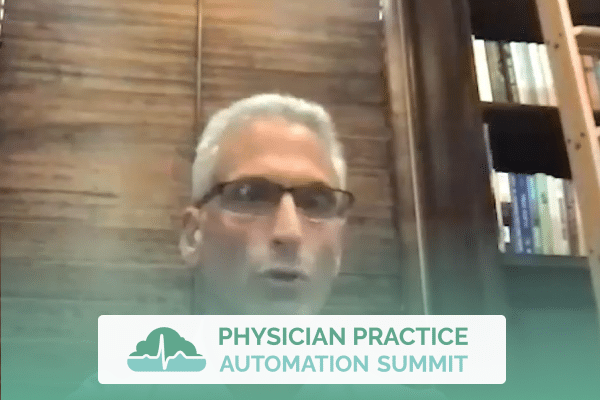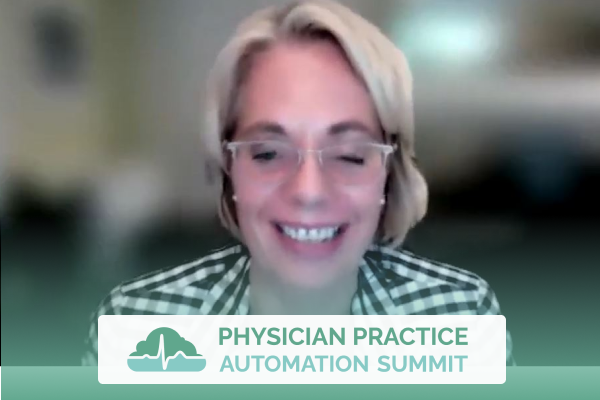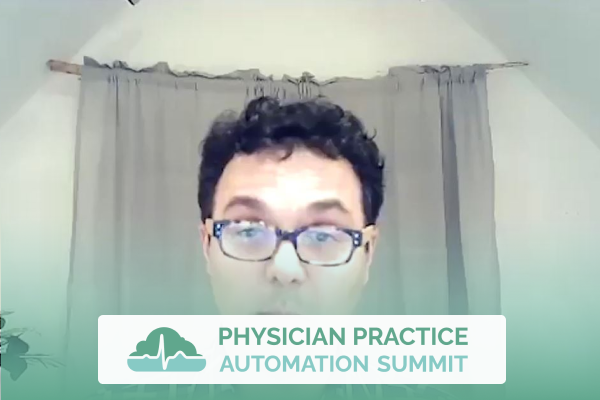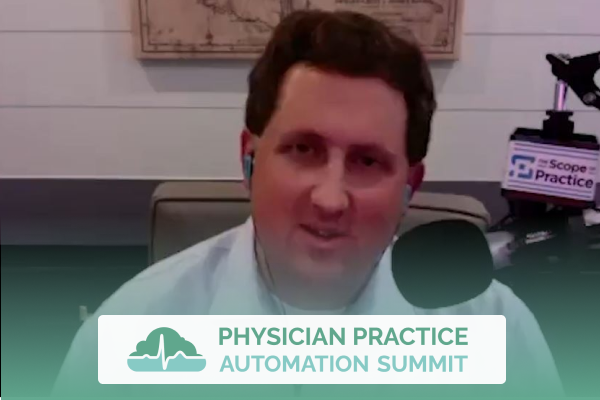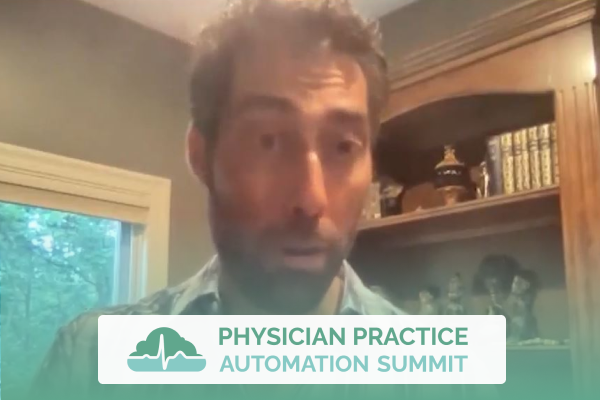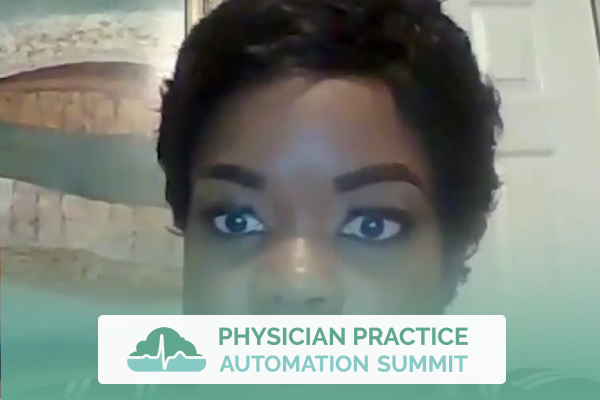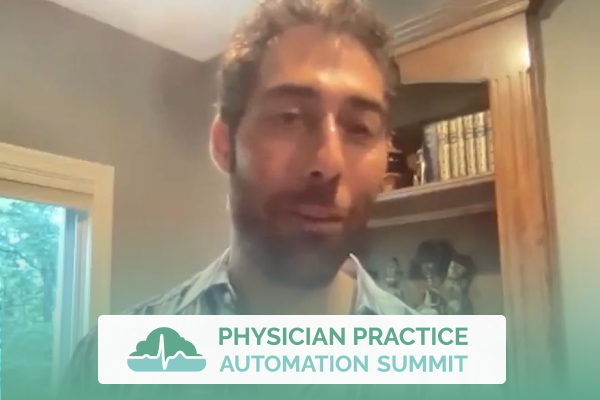Join the discussion below
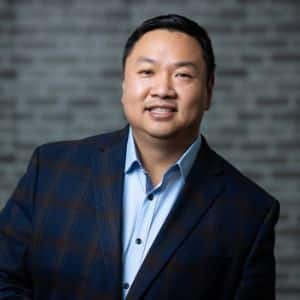
Dr. Ruan is the Founder and CEO of Texas Center for Lifestyle Medicine. He devotes his career in practicing and building systems that allow for efficient delivery of healthcare. He is a board certified internal medicine physician but also have advised with companies to improve their workflow, company culture, marketing,... Read More
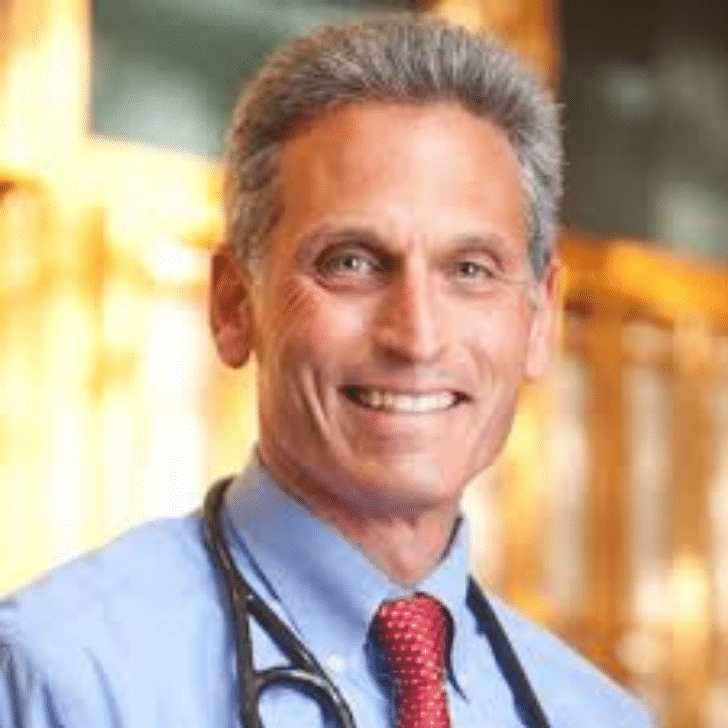
Adam Perlman, MD, MPH is a physician in the Department of Internal Medicine at Mayo Clinic hospital in Jacksonville, Florida. He specializes in the integration of lifestyle and other complementary modalities, such as acupuncture or massage, with more conventional medicine in a whole person approach to treating a wide variety... Read More
Cheng-Huai Ruan, M.D.
Hey everybody, I’m really excited to introduce Adam Perlman, M.D., MPH. He’s a physician in the Department of Internal Medicine at Mayo Clinic, and he’s had multiple publications on satisfaction of physicians with telemedicine, incorporation of health coach at the Mayo Clinic and the outcomes for that, as well as redesigning what it means to practice medicine during the COVID-19 era, with machine learning and artificial intelligence. Dr. Perlman is board certified in Internal Medicine as well as Integrative and Functional Medicine and he received his medical degree from Boston University. And he is, before the Mayo Clinic Dr. Perlman was the Associate Vice President for the Health and Wellness for Duke University Healthcare System, for Duke Integrative Medicine in Durham, North Carolina. So, he’s got a lotta experience with Integrative Medicine. Today I wanna touch on multiple points. Burnout, where the future of medicine’s gonna go, as well as a few other points. So very excited to introduce Dr. Perlman to you guys. Welcome to the Summit. So happy to have you on.
Adam Perlman, M.D.
It’s great to be here, really glad to be a part of this, thank you.
Cheng-Huai Ruan, M.D.
No, thank you, thank you so much. And we’re gonna touch on several things. But, I really wanna start with burnout and the manifestation of burnout. So, you know, we know based on study, I think it actually came from Mayo Clinic actually. I believe it was 44 or 46% of physicians are burnt out and that study came in 2017. I’m sure it’s more now. But, let’s talk about it. Like, let’s define burnout. What is your definition of burnout?
Adam Perlman, M.D.
Yeah, to your point there is evidence that certainly during the pandemic burnout has increased, and not only with physicians, but allied health nursing across the spectrum and of course, other professions as well. But, you know, sure I think when you think of burnout I think a couple of things are important as sort of the more formal ways of thinking about burnout, the idea that you’re suffering I think what often in my observation is most common, sorta the constant emotional exhaustion. You just feel you’ve lost it emotionally. But then there’s also a component of cynicism and really lack of self efficacy. And I think it’s important to understand those three, because it’s a way to recognize if you can be self aware that hey, wait a minute, I may be getting a little burnt out here. I find myself doing that in moments, right, because I think it’s important to also think about burnout as a space that you may get into, you know, as we’re existing along this continuum, right.
I mean, there’s sort of a wellness, wellbeing continuum. I think we can think about that from the perspective of our mental health, okay. So, I used to have a talk that I gave on this and I made this slide out where on one end you know was maybe the Dalai Lama. I think I had a picture of the Dalai Lama and I said, on the other end I had a picture of like a state mental institution. And you know, most of us are not perhaps you know, somewhat tongue and cheek, at the level of the Dalai Lama in terms of you know, our inner peace, the way we’re feeling. You know, can’t speak for the Dalai Lama, but you know, just as an example. And you know, fortunately, most of us, although some are, not at the point where we’re suicidal or requiring hospitalization, okay. Those are the two extremes. The majority of this, of us exist within the bell of this shaped curve. You know, we’re having a good day, a bad day, a good week, a bad week, maybe a good year or a bad year, but you know, it’s sort of how stressed are we at a given moment.
And there is that literature that talks about burnout as sort of being on the spectrum of kinda stress, burnt out, depressed perhaps. But again, if you get back to the more technical definitions you know, we’re thinking about burnout really more from the perspective of how you’re feeling at work. So, it was really intended to be thinking about from the perspective of work, ’cause I think we can feel some of those same emotions or states of sort of exhaustion, cynicism and self, lack of self efficacy within our personal lives as again a little more technically, you know. We tend to really focus on burnout within the workplace. And as I was saying earlier, if you can keep those sorta three concepts in mind it can be important, because you can kinda catch yourself and then maybe stop in the moment. So, I know like when I’m having a day where I’m really feeling kinda cynical, like what the heck am I doing, really making a difference? And you know, in my head sometimes if I’m being mindful I can kinda stop and say okay, wait a minute. What’s goin’ on with me? Am I feelin’ a little burnt out in this moment? And what do I need to do? What do I need to do to kinda get myself out of this funk?
Cheng-Huai Ruan, M.D.
What are some factors you think that come to mind that create this manifestation of burnout, that becomes bigger and bigger load for people?
Adam Perlman, M.D.
Yeah, again typically, when we think of burnout there are sort of two main ways to think about maybe the drivers of the issue, but also the way to think about the solution and that’s from the perspective of the individual. You know, and from the perspective of sort of the organization or the enterprise in which we work, right. And so, you know, from the perspective of the organization or enterprise just to start there, some of the factors are things like work and lack of time. You know, there’s a lot of things that we’re hearing from employees and not just at our institution, but we know from others, things like Zoom fatigue. And certainly we’re seeing in this moment at the time of this recording, you know, with yet another third surge in COVID, you know, just people are working really hard. They’re overtaxed and they’re tired.
There’s also a concept of administrative burden and how much time we, let’s say as physicians, but also other healthcare professionals, but just from the perspective of a physician, need to spend with what’s often referred to as administrative burden, which in many ways takes us away from why we potentially went into medicine to begin with. And so, people begin, have begun to talk about burnout as really an issue of moral distress, because we’re really being pulled away from you know, really our calling, let’s say, and spending less and less time with the patients trying to be good physicians and more time you know, in Epic or our various health records, needing to click the right buttons or do the right type of you know, documentation.
So that that’s really one half of it. And then, of course, the other side is you know, our own personal resilience, our own ability to even midst of what is not only a busy moment for all of us, but for most of us a busy career, a busy life. You know, and so we talked a lot about burnout well before the pandemic. Burnout has amplified the issue in many ways and I hope from a sorta take lemons make lemonade perspective that that amplification will lead to you know, I think once we’re through this, the worst of this moment, will lead to you know, really a renewed effort to try to address the issue of burnout, you know, really across the board as it relates certainly to healthcare, hopefully other institutions as well.
Cheng-Huai Ruan, M.D.
Yeah, absolutely. You know, right before we got on I was actually looking at LinkedIn and a cardiologist friend of mine, integrative cardiologist friend of mine shared this post about a physician, I believe it was either ER physician or critical care physician, putting onto LinkedIn that you know, if you’re basically if you’re contributing to the pandemic, if you’re not vaccinated, like don’t burden the hospital. Don’t come here. And you know there was a hashtag, it was like it was like venting or something like that. And I see a lotta that behavior more and more in physicians. And so, that scares me a bit because I do think that we have to show some sorta restraint on social media, but also that behavior didn’t start because this person was inept or not mature, but because there was this significant emotional burnout, significant emotional fatigue that’s triggering that behavior. Now this physician’s literally being blasted on social media right now, and I feel bad for that. But, how do you think it got to, got to that situation?
Adam Perlman, M.D.
Well, I think that’s you know again, goes back to what I was saying earlier, I mean there’s a lot of stressors being put on us from the system, some of which are beyond the control of the system, of course. I mean, administrators or healthcare leaders didn’t create the pandemic. And I know in many institutions, ours included, we’re trying to hire people as quickly as possible and you know, but it’s still very very difficult. But then, that gets superimposed on someone who may already have been struggling to begin with, right. And so, you know very often it’s really, it’s not only about the situation, but we’ve all dealt with stressful situations. It’s how we’re able to respond to it. You know, and so the perspective where we’re able to maintain again, even in the midst of a very very challenging moment.
And I’ve heard and seen some of those same comments and I think they’re unfortunate. I mean, on one level I understand the upset that can come with all of this, but you know, we could argue that for multiple things. You know, we treat the unvaccinated COVID patients just like we treat the drunk driver that got in a car accident, just like we treat the person that lived a terrible, unhealthy life and developed heart disease, you know. Again, our job is to treat the patients and not, not to judge you know, hopefully to work with our public health colleagues to try to address you know, other issues, like encouraging people to get vaccinated and you know, wear seat belts and not drink and drive and live healthier lives to avoid the development of these chronic diseases that we spend most of our time dealing with.
Cheng-Huai Ruan, M.D.
Yeah, absolutely. I think that some resiliency can be, can be developed. Let’s talk about how that, how that even happens. How do you think, you know, we as a physician community, can start developing this resiliency against burnout.
Adam Perlman, M.D.
Yeah, let me say this. I talk a lot about resiliency. I had done a whole series of lectures and different like a workshop almost and a number of institutions and Mayo across, prior to the pandemic. And so, this was even prior to the pandemic and then when the pandemic hit I sort of had a different talk that I was giving that was related to resiliency. And I am careful to make this comment because the risk is that when we talk about sorta the common . When we talk about resiliency the risk is that we’re blaming the victim, right. And so, this is not to say oh yeah, it’s tough, but you oughta be resilient and what’s wrong with you? That’s not the message here, okay. There is a lot of work that needs to happen to make our work environments a better place for all of us, right. And that clearly is, is effort that needs to be focused on.
Many of our institutions are focused on the issue of burnout on some level. As I said earlier, I’m hoping that that will even be more amplified. It’s certainly the issue of employee wellness in general. I can speak from my perspective at Mayo. It’s clearly been amplified by you know, the pandemic and the recognition of how difficult this has made life both at home and at work for all of our employees, let alone our physicians. But again, I go back to kinda what I said before. I mean, in the midst of this or while we’re doing the work, we still need and owe it to ourselves to take care of ourselves and to be as resilient as possible. And then, this about the way we are at work versus the way we may be at home, but it’s also recognizing that you know, work life balance is really work life integration. And so, you know, being resilient physically, mentally, spiritually is really about our lives. It’s not you know, solely about good doctors are able to do what we wanna be doing in our work lives. And you know, the words are easy to say.
The application is more difficult. It seems like we need to prioritize self care. And you know, probably as I say that I mean half the audience wants to reach through the camera and go like yeah, you’ve heard that 100 times. So you know, it’s how to do that. I mean, I know for me as someone who spends a lotta time talking to my colleagues, to the public about these kinds of things, certainly to my patients, ’cause I do a lot of medicine and you know, talking like this. I’ve actually been looking at the literature around habits and habit formation and you know, how do we make some of these changes? We’ve brought in health coaching into Mayo, both for employees and certainly for patients so that you know sometimes someone needs a coach. You know, we often feel like we’re physicians. This is something that’s health related.
We should have all the answers. You know, and that’s not necessarily true. First of all, we didn’t learn a lotta this stuff in medical school anyways and of course, you know, like other medical conditions that we might develop as human beings, you know, we would see some other doctor. We wouldn’t expect ourselves to treat ourselves, you know, by and large. And so, you know, often we do need to reach out for help. And I would say, particularly as we’re talking about burnout, that sometimes that help is professional help, right. Sometimes we’re on that spectrum that I talked about and we really do need to talk to a psychologist or someone at the EAP, our Employee Assistance Program. Maybe we need a psychiatrist. Part of our issue on the culture of medicine at least historically, is not very open to us admitting that we’re vulnerable, that we need help. We know that not only physicians mental health issues, but things like suicide is a real problem. And so, you know, many institutions are increasingly aware of that. So I just wanna emphasize that because a lot of times it’s not you know, I really need to do more yoga.
It’s I need to speak to a psychologist, need help. But again, fortunately, you know, for the majority of people, you know, they’re typically more at a place where they need to do more care for themselves and it doesn’t necessarily need to be medicalized. So, you know, that is things like prioritizing self care. I know that’s easy to say, but finding ways to find that balance. You know, a lotta that starts with habits and what I often talk about is, and I don’t, you know, I guess ’cause we’re kinda in a riffin’ here, I’ll go into this for a minute. I mean, it’s sort of a you know, but there are some real interesting books you can read that can give you some new insights. I mean, it’s things that may seem intuitive when I say them, like starting small, piggy backing habits. You know, so if you’re like, I just wanna start to take five minutes to meditate, I’ll use that as an example, or you know, or 10 minutes to walk.
You know, and I’m having trouble putting that into my day, well, maybe you can do that five or 10 minutes before you brush your teeth. You sorta piggyback that habit with something you normally do. I know one thing to give a try working with self care, you know for me, if I don’t exercise I’m toast. So, in the habit of getting up early enough that I can exercise and get to the gym before I go to the hospital. A couple of things have had to happen with that. A, I’ve gotta go to bed before my wife. So if we’re watching a show and like you know, it’s on Netflix, and there’s another show comin’ up, she knows I gotta go do my wind down routine to get ready to get into bed ’cause I get up earlier than her. But similarly then, in the morning I do, and this is in sorta the habit literature, I remove friction, right.
So, if you wanna create a good habit or implement it, remove friction. If you wanna get rid of a bad habit you know, add more friction. So you know, in case of a bad habit it may be if you’re hittin’ the snooze button you know, move the alarm clock across your bedroom. Okay, so you have to get outta bed, walk across the room, hit the snooze button. In the case of removing friction, you know for me, when I get up, before I go to bed at night, the clothes are laid out in the car, the gym bag’s in the car. In the bathroom I normally get changed. My wife’s asleep. You know, I’ve got the gym shoes with the socks plopped on top of them. I’ve got gym shorts and a t-shirt. So, I don’t get up and go, what tie am I gonna wear today? I basically can do, and this will be for some older viewers, do like a George Jetson, if you saw that cartoon. He’d go voom and the clothes would come on him, right. Exactly, so I remove friction so that way I can try to get some sleep, but not you know, but be real efficient in the morning when I get out the door. And that’s really a way of life for me. I don’t even really think about it anymore. It’s kinda like oh yeah, it’s night, time to kinda lay my clothes out and get rollin’.
Cheng-Huai Ruan, M.D.
Yeah, frictionless, remove the friction. Yeah, and I do the same you know, for my kids. I pre-pack their backpacks before I take them to school in the mornings to make sure that everything’s done so we can not be in a crazy rush to get out the door. One of my favorite books is Atomic Habits, by James Clear. Actually, he talks about all that stuff in there.
Adam Perlman, M.D.
I didn’t come up with this stuff. I read his stuff, there’s a lotta really good books out there. You take little snippets away and you see how it fits in your life.
Cheng-Huai Ruan, M.D.
Yeah, and I think it’s also important to, especially during like a meditation process, to really understand internally like, what’s valuable for me today. What are some, what are, what is one win I can have today for myself? And that’s truly been something that’s really valuable for me, especially during the pandemic era, especially right now. I say pandemic era like it’s gonna end, but you know, during the current situation, right. And so, I think with resiliency, you mentioned something earlier that I actually didn’t know what you meant, but maybe you can clarify a little bit. You said, work life integration and not work life balance. What is the distinction between the two.
Adam Perlman, M.D.
Again, not, I first read this in a Harvard Business Review article, quite frankly, so not my term. But, one I like that really resonated with me. In the article they talk about the fact, remember correctly, it was a few years ago, but I think this came from that article, but that part of the problem with balance is it implies 50/50. And you know, the reality is, certainly for us as physicians, but for many people, it’s not that you’re spending 50% at home and 50% at work and when you think about it that way you’re almost setting yourself up to fail. You know, that may or may not resonate with people. What really resonated with me was this idea that also, you know, increasingly it’s not about oh, I’m at work from whatever, even seven to seven, and then I’m home you know, the rest of the day. I mean, there’s this level of integration and hopefully you find ways to make that work as a two way street.
So yes, you know, maybe emails are eeking in, and you know you can read the literature. Oh, don’t do emails here or there, you know. I do that stuff. I mean, I lecture on this stuff and you know, I find what works best for me. You know, and for me when I’m on vacation if I let all my emails go, and the idea of me comin’ back to 300 emails is so unsettling that I’ve found that rather than check ’em all day, you know, even when I’m on vacation I say all right, you know, I’m, no one’s doin’ anything, I’m up at 7 o’clock in the morning havin’ my coffee before the kids get up, you know, and take ’em to the beach, let me clean the emails up.
You know, this idea of how do we integrate? You know, similarly I mean, I don’t know, I’m at lunch and I need to make a dentist appointment, I make the appointment. I mean, you know, whatever it might be. Like, how do we you know, during a work day like say. How do we find that integration that feels best to us and not disruptive? For me, the key there, what I sort of learned really as I’ll say struggled with this in my own life, you know, I have five children. I work a very busy career. They’re kind of grown now, 18 to 28, maybe 29 almost by the time this is viewed. You know, always been busy and kinda high energy. You know, I think what I found was one of the keys to this working well was to be able to be present.
People love the term. What I you know, for many of the viewers maybe that’s fine. Some may find that word a little too touchy feely, or it implies you gotta meditate, and you don’t. It’s about being present. Now, mindfulness is about intentionally sort of being focused on the present moment, doing that in a non-judgmental way. But, the key is you know, for me anyways, you know, I’ve found and then it can allow me, if I can be more present, so if I’m at work if I can be more focused on doing in that moment, whether it’s speaking with that patient or you know, interacting with that other colleague of mine, and use that same approach when I’m you know, in the car with my son and not while I’m with my son checking emails, thinkin’ about work or other things and vice versa, then it’s a better experience for me and it’s a better experience for either my patient or colleague or you know, in the other example, my son.
And that has been a really important realization was sorta me working on not having my mind be in work when I’m supposed to be and I’ve chosen to be focused on something that is more about my personal life. And now, the good news is to the degree that that is called being mindful, that’s something that can be cultivated. I mean, it’s like it’s an innate capacity we all have. It’s like a muscle, right, that you can strengthen. And you know, what’s interesting there in meditation, things like that, mindfulness base practices are certainly a way to cultivate and strengthen that muscle. But, there’s informal ways to practice as well, which is sort of really setting the intention of being focused on whatever it may be. Maybe just you know, sitting out on a park bench with your spouse or a partner and just focusing on the moment.
What can you see? The key is, whenever your mind wanders recognizing it and just bringing it back to whatever you intended to focus on. And for those of you that find meditation frustrating at times, like I do, because I wanna do it perfect. Every time I wander, I’m like ah, I couldn’t even get to 10 breaths. What’s wrong with me? You know, how come I can’t be perfect? You know, I’ve had to learn from instructors and others that know a heck of a lot more than I do, like that’s, that’s the curl. Every time you notice your mind has wandered and you just go, oh, my mind wandered. Let me bring it back. Am I breathing? Whatever I was gonna focus on, my conversation with my son or daughter, whatever. That’s the curl that strengthens that muscle. You know, and just like workin’ out. I mean, those curls can be painful sometimes, right. I mean, but the more we do them the stronger we get over time. So, you know, that’s really where I’ve landed with sorta work life integration and trying to find you know, what works best for me.
Cheng-Huai Ruan, M.D.
I think, I think what I’m takin’ away from the work life integration is that the same tools that you’re using for work you’re also using for home as well. It’s really, it’s a very holistic process and you know, takin’ a pause, recognizing the triggers before you do something and then understanding why it happened, and then taking care of the back end. I do think that all these things between work life and home life is really the same, and most of it, you know, most of this stem from our subconscious side. And so yeah, I think the subconscious side drive what we do at work and drives what we do at home and drives our behaviors on social media and everything else as well, you know.
Adam Perlman, M.D.
Well, you know you bring up a great point and I don’t mind sharing this. You know, one thing I recognized a few years ago. So, the kids were still at home, so they were younger, and you know, career’s really rampin’ up and at one point I recognized and I was probably feeling a little burnt out, certainly overwhelmed. I was fortunate enough to be able to work with a wonderful executive coach who helped me a lot at a point in my life and I think he maybe helped me to see this, but, but what I realized was that you know, I was really emotionally regulated at work. I wasn’t someone that you know, yelled at my colleagues or my patients, or you know, not that we do that, or nurses or you know, I could stay pretty calm. I’ve always had a lot of administrative responsibilities, so I had a lotta people that were reporting to me and different things like that, not always, but certainly the majority of my career. And then I found I wasn’t as emotionally regulated at home.
You know, how come if someone made a mistake at work I’d be, you know, that’s a mistake, let’s try to fix it this way. And if you know, my son spilled the milk for the third time, I was like, what are you doin’? You know, how many times did I tell you to be careful? And I kinda said to myself like, who are you? Who do you wanna be? Show up, are you that person that can be emotionally regulated or are you the guy that yells ’cause your son spilled the milk by mistake? And you know, what’s more consistent with my values?
And you know, fortunately I guess, for the people around me, it was being that person who isn’t perfect, but doesn’t, you know, just kinda yell and scream and what have you. And so, I really focused on this idea of being more consistent. Again, integrating who I am, but you know, this idea of you know, trying to be the kind of person I wanted to be at home, at work, wherever I am. And again, I say that you know, recognizing that it didn’t always work, right. We’re all human. But, it was a perspective that I found very helpful. And I think the idea of being mindful and being able to stop in the moment and not react, but maybe take that extra half a second to respond in a way that was more consistent, again, with my values, who I wanted to be. That was I think, really important for me and I you know, like to believe it was really important for my loved ones and people around me.
Cheng-Huai Ruan, M.D.
That’s great, and like you said, a lotta these things we have to go out there and understand on our own, read books, you know books like Atomic Habits, and anything that kinda drives you. But also, allocating time you know, for ourselves to have self improvement and growth and not just contributing to the public, we’re contributing to ourselves internally. You know, we have to make sure that that is allocated and scheduled as well. There’s this book called Essentialism that talks about, what are the most essential things to humans that we, we have to dominate. And you know, there’s families and careers and stuff like that, but there’s, there’s one section that’s called Play, and I think it’s Chapter Four.
And this whole chapter is about why play is actually essential and all the studies that show that it’s actually essential for the human process. And I think we, as physicians, we naturally do not like to cater to that category because it’s not our professional category and we kinda poo poo on the play aspect. But, like you said earlier, you gotta have some time to you know, go with your spouse and walk around, look at the sky, look at the birds, whatever it is and spend time with your family. But, I never understood that play was actually a part of what essentially makes us who we are and human. And after I really read and understood that, I now have calendars of play and I share that with my family. Hey, this is our play time. We’re really gonna do this. Like, there’s no phones, there’s no Apple watches, nothin’ like that, and this is our play time. And then, when I started experiencing that aspect of it it really translated into every aspect of my life, including the way I talk to my patients as well, which was not what I was expecting. And so, I think, go ahead.
Adam Perlman, M.D.
No, I was just gonna say, really really interesting what sorta making me think about, one of the areas of interest I have is that this idea that you know, when we think about our own wellbeing, you know, if we say, well, what do you need to do to take care of yourself? Oh, I need to eat right. I need to exercise. You know, and I need to manage stress. Yeah, and I need to get sleep, maybe start to throw in some of those. But, there are so many other things that define our sense of wellbeing and often our health status to a certain degree. And I love you know, the idea of play. I think it’s really important, but there was a nuance in what you said too, that you make your play time with your family, right. And I’m not saying everyone has to have a family necessarily. You don’t have to have kids, that’s not.
But, the idea of connection is critically important. And I think that’s another thing that the pandemic has exacerbated. I mean, not only for us in healthcare, but for you know, certainly our patients in general. Sometimes it’s created issues of too much connection. Like you know, we’re stuck in the house with our kids and spouses and what have you, but by and large, it’s been the opposite. And what I mean is people are lonely. We’re not able to connect the way used to. You know, when we do connect often we still need to wear masks or if we’re in a clinical setting, but even sometimes now still in non-clinical settings. And prior to the pandemic loneliness was really an epidemic in this country.
About 40% of people surveyed you know, would say that they fairly regularly felt like a lack of companionship. What’s interesting there is there’s some very interesting research that’s shown that loneliness is equivalent to smoking 15 cigarettes a day, as it relates to morbidity and mortality. And so, when you think about it, we need to play and we need time for ourselves, and we need connection. You know and so, you know, for you, certainly for me, I enjoy more being, I mean, it’s just the way I am. I grew up in a large family. I enjoy being with my kids most of the time. I mean, I enjoy some alone time, but by and large for me it’s like all right, play time means, you know, it’s hangin’ out with some family or friends certainly. And again, not to say that there’s anything wrong or it’s not important, it certainly is, to have time for yourself. But, that idea of connection is so critical and we often don’t think about that when we think about you know, what do I need to do to be well, to have my best kind of life.
Cheng-Huai Ruan, M.D.
So, loneliness is equivalent to smoking 15 cigarettes a day in morbidity and mortality.
Adam Perlman, M.D.
I can send you the reference.
Cheng-Huai Ruan, M.D.
That is, I mean that’s insane to think about, but at the same time, now if we take the pandemic into consideration, no, smoking cigarettes is a risk factor for getting severely ill with viral infections. But then, it seems like so is loneliness, right? The isolation, the loneliness, that’s also gonna be the similar risk factors in our immune health, right?
Adam Perlman, M.D.
Well yeah, I mean, again, there’s very interesting studies looking at various sort of things like loneliness on mark us of immune function again. I’m a little bit on skates here ’cause I don’t wanna give misleading or inaccurate information. But, I’m sure we could pull that literature. I think it’s really interesting. We do know in general that a lot of these issues like loneliness, like whether I’m happy or not happy, they do impact directly on our health status. I mean, these sort of, there’s so much that goes into truly defining really not only our health, but our own sense of wellbeing and quality of life. And those things are things that often we don’t ask about or you know, very often unfortunately, we don’t have time even to delve into in a typical kinda medical interaction with our patients. I think the more that we can think about those issues as it relates to ourselves, the more comfortable we become in at times when it’s appropriate, delving into some of those issues with our patients and I think the more we can help them.
Cheng-Huai Ruan, M.D.
Yeah, absolutely, help ourselves to help our patients.
Adam Perlman, M.D.
There you go.
Cheng-Huai Ruan, M.D.
And I think that’s the true, the true character of just integrative health in general, I think. Do you think that, do you think that, I mean, you’re in a group of health physicians just like I am. Do you think that in practicing integrative health that it’s made us a bit more aware of what’s goin’ on in terms of like social dynamic and psychological aspects of health in the public?
Adam Perlman, M.D.
You know, this may not be the answer you expected, but I’m gonna say it anyways.
Cheng-Huai Ruan, M.D.
Sure.
Adam Perlman, M.D.
When I first got to Mayo to develop, in Florida they’re integrative program, you know, and I would meet people and you know kind of somewhat tongue and cheek, they were saying you know, what are you here to do? I was saying I was here to put integrative medicine out of business, because you know, there’s only real good medicine, and the best way that we know to care for our patients. I think when we think about integrative medicine, and again, I’ve done integrative medicine for 23 year you know, at this point, and I’m proud of what I do and I you know chair the academic consortium, I mean again, but my point was that you know, this really, what are we all trying to do here? We’re trying to do our best to care for our patients and help them to reach their, their health and perhaps life related goals to the best of our ability.
I would say that those of us that sort of identify ourselves as integrative, or identify with integrative, you know, tend to be interested in some of these concepts. We tend to study them more. We tend to apply them more in our life. You’re like, oh I read that book. I’m like, yeah, I read that, too, you know. And so you know, we tend to read the four agreements. We tend to take a mindfulness class. And so, then we bring those things through our own experience and to a certain degree, wisdom, we bring those things to the degree possible into our practices.
And then of course, the other sort of differentiator is you know, we’ve tended to study a little more of the literature around what’s the evidence for acupuncture, or you know, or other sort of complimentary modalities. But I would never wanna say that you know, integrative medicine, integrative medicine physicians sorta own the idea of considering, and I know you weren’t saying that. I’m just sorta being careful to say it from my perspective which is it’s areas that are part of a good practice of medicine that we tend to have a particular interest in and for most of us you know, particular expertise in, as well.
Cheng-Huai Ruan, M.D.
Absolutely, I actually agree with you in fact, even my facility, we actually dropped the integrative title and labeled something brand new to me, which is basically we like to collaborate. It’s collaborative medicine. We like to collaborate with your doctors, no matter who your doctors are, what specialty they are. We like to collaborate with you. And so, we sort of during the pandemic, had this sort of, sort of mind shift within my facility of we practice good medicine and it’s collaborative medicine and that’s the only way to do it. You know, we’re not here to put anyone down. We’re not here to determine superiority over another, so I 100% agree with you. As you’re talking I’m just smiling bigger and bigger ’cause I appreciate that.
Adam Perlman, M.D.
Well, I knew you weren’t implying that. I just, you know.
Cheng-Huai Ruan, M.D.
Yeah, yeah. But, you’re right. I think the people who kinda we label ourself historically as integrative tend to look at other things. You know, my mom’s an acupuncturist, for example, right. So, that kinda goes to show you. So I grew up with a mindset of medicine that everything should be integrative anyways. So, it’s like normalcy for me. And part of this whole process, and especially the pandemic, is that all of a sudden you know you have the American public start talkin’ about their immune system like, like they’ve never talked about before. There’s focus on mental health like it’s never talked about before. And so, I think there’s some positives here and people are just kinda goin’ into themselves and seeing deeper for themselves what’s truly out there.
So, I do think that’s that’s certainly a positive note and like you said, you see lemons make lemonade and that’s the way we’re gonna squeeze it, right. And we, now yeah, and we now have this opportunity to also you know, view ourselves in that hey, there’s more to the practice of medicine than what we learn in medical school and residency and fellowship, right. There’s a whole relationship aspect of this that’s not really taught, or if it is taught it’s not really taught on a very robust scale. But, it’s assumed, and I think that in this day and age we really can’t assume anything. And so, I’ll give you a quick example of what I mean. So, my sister goes to Columbia University Medical School. She’s in fourth year medical school.
She’s much, much younger than me. And one of the dynamics is that the way that her and her cohort of people speak about their rotations, their physicians is always like some level of burnout first that they see amongst the administrators, the physicians during the pandemic, right, and they see that as uncertainty, right. And so, a lotta these medical students are kinda goin’ within themselves. It’s like hey, what truly matters for me right now? So I think it’s a great conversation for me and my sister to have, but at the same time we also see the opposite where people just kinda wall off to themselves and be even lonelier. So I think that if we make conversations like this like commonplace and normal within our physician community, we really have to show the medical students and the residents, hey, it’s okay to talk about this, right. We wanna talk about this and we should have it open. Do you agree?
Adam Perlman, M.D.
I totally agree. I think you know, that goes back to something we were talkin’ about earlier, sorta the culture of medicine and you know, the hesitancy to display any level of vulnerability. You know, and I think that’s what has made it so difficult on one level for our colleagues when they are struggling with mental health issues. And I also wanna say that you know, I’m concerned about the tail to this moment, as we come out of this moment. I think to me, and I’ve said this to some of our leadership, at least this wave, this is sorta the third wave for us here in Florida, of the pandemic, of COVID rather, and you know, it’s kinda like a third tour in Afghanistan, you know, with all due respect to services, to the armed services, people that serve. You know, I would imagine ’cause I haven’t been to Afghanistan, that you know, you know a little more of what to expect.
You know, there’s always nuances and the enemy has evolved, you know, over time, but you kinda know what to expect and you hunker down and you do the job and you focus on mission and it’s not easy, but you do what you gotta do. And then it ends, God willing, and you come home. And as we all know, from what we see at the VA and with many of the patients that we may treat have had those kind of experiences. You know, often there is a real PTSD, you know, a tail to that that can be really challenging, obviously, require you know a lot of intervention and I am concerned in a similar way that you know, we will, we’ll make it through this moment of COVID, but we’re gonna have some work to do, and that we will continue to have many colleagues, and I say colleagues, really across healthcare, not just physicians, who will be suffering coming out of this.
And so, I hope the point that we’re both trying to make about lemonade that you know, there’ll be, and I’m sure there will, but this ongoing effort to make sure that we do whatever we can to continue support each other, quite frankly. You know, because I don’t think it’s gonna be over you know, when the COVID surge is over and we can stop wearing masks.
Cheng-Huai Ruan, M.D.
Right, you’re absolutely right and keeping the conversation alive and keeping it open is the most important thing. It doesn’t have to be on social media, just amongst our, our physician ally health professional friends, but keeping the conversation about burnout. But also be careful not to place blame. I think you said earlier, but you know, understand that there are some things, and there’s disagreements between people and between patients and between philosophies. But, the idea is not to, not to be divided upon pre-existing notions, but to be united amongst, amongst the impairment of what we perceive to be self worth. And I think that’s the most important part is getting the conversation out there. And you know, it doesn’t matter if I’m speaking to a pro-vacs or anti-vacs or non-vacs, or whatever you wanna call it these days, none of that matters. We all have the same struggles. We all have, we all have human needs that may or may not be met and we all should have that same level of stamina and resilience and the operating system is still the same, no matter what type of human we categorize ourselves as, right?
Adam Perlman, M.D.
There’s another book that I just read. Adam, Think Again, Adam Grant. That you know, looks at, we live in such a polarized society, interesting book looking at how people form these opinions and trying to ultimately help us to find ways to better understand each other, ’cause to your point, if we wanna focus on blame I mean we just, that isn’t gonna solve any of the issues that we’re dealing with. You know, and we need to pull together, even with our differences, to find ways to do our best, to make it through moments like this and continue to try to thrive.
Cheng-Huai Ruan, M.D.
Absolutely. So, let’s talk about Mayo Clinic for a second because earlier you said that there’s health coaches within Mayo Clinic, right? You said they’re coaching patients as well as the staff, as well?
Adam Perlman, M.D.
Yeah, I mean, it’s an evolving, it’s evolving. So, up in Rochester, you know, we have three major campuses. You know we have other facilities around, but so the three major campuses are Rochester, Florida and Arizona in Florida campus, sorta the mother ship is Rochester. That’s where Mayo Clinic was founded, of course, Minnesota. I thought it was New York for, for probably til I was asked to come and interview. And I was like, oh, I thought that was New York. I just made that assumption. Anyways, there’s a share. And they’ve had health coaching for employees up in Rochester for a number of years.
One of my interests actually coming out of Duke, which is where I really got exposed to health coaching when I ran the integrative program there. I really became a fan. It started as a bit of a missing link in terms of you know, health behavior, health behavior modification being so critical to certainly preventing, but often even treating, many of the chronic diseases that plague society. Yet, who’s the person that could help with that? You know, I mean, so when I had the opportunity to come to the Mayo I knew I wanted to really integrate it into our clinical practice.
So fortunately, I had a lotta support from administrative colleagues and others. And so, we have an order in our electronic health record just like an order for any other allied health professional and you know, I routinely put those orders in. More and more of our physicians routinely order it. I think we’ve had it up and running probably, well, it was probably pre-pandemic, but maybe just around the time, so you know, I would say a year and a half, whatever we’re finding ourselves in, a little over, that we’ve had that up and running. And we’re looking at developing, as are others of course, you know, group health models. We have some research projects underway where we’re integrating health coaching, one for our employees. We have a project right now that’s patients with lung cancer and their caregivers. So, we try to use a coaching dynamic to not only support the patients, but support their caregivers. And you know, I know this is an area of expertise of yours as well, and so of course, you know I think there’s a lot of interesting things happening across the country as it relates to health coaching. So, it’s exciting to see what’ll happen over the next few years.
Cheng-Huai Ruan, M.D.
Yeah, I have two coaches myself, just for me. I joke, one’s for my left brain and one’s for my right brain. But, it’s kinda true. Yeah so, you know, thank you for bein’ on. And what a, what a great conversation and thank you for you know, sharing your stories and your vulnerability as well. It’s somethin’ that I think that I truly admire whenever physicians open up and be vulnerable and just share some stories and I think that’s what’s truly needed for establishing a really stronghold for the tail of this pandemic, as you were saying. And I think that healthcare’s gonna progress if we have better conversations. So, thank you very much.
Adam Perlman, M.D.
Thank you, and again, it was an honor to be on here and I really appreciate the opportunity.
Cheng-Huai Ruan, M.D.
Thank you.
Downloads

